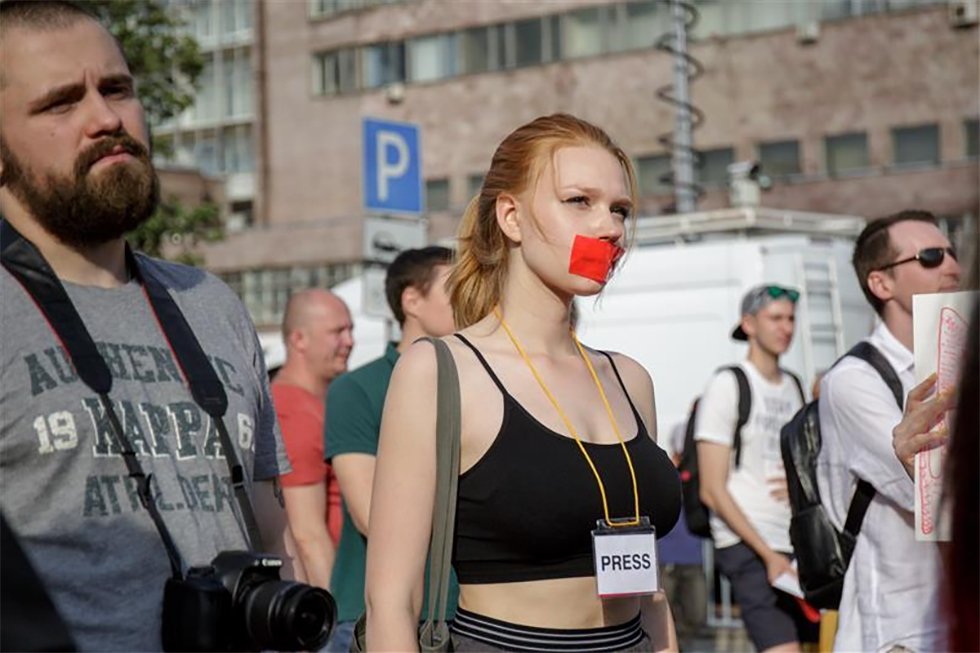 | ||||
| ||||
| ||||
Dear FO° Reader, Last month, I wrote that Russian influence is evolving from disinformation to democratic erosion. When the piece was finally published, I complained on social media: “I could write an article about writing this article”. Fair Observer took me at my word. So here it goes… Over the past couple of months, I have been conducting a deeper examination of Russian disinformation, particularly in Central and Eastern Europe: how it erodes trust in democracy and institutions, how vulnerable we are and how the Kremlin plays the long game here (and they could be winning already). I have been exchanging with experts, talked about it in podcasts and also wrote a couple of articles on it.
Euphemism and editorial self-censorship To my surprise, an editor advised me to avoid the word “disinformation” entirely. It was deemed too “politically charged.” The implication wasn’t that the analysis was wrong — only that the term might upset someone. It felt like a scene from an Orwellian dystopia: not because someone demanded censorship, but because the boundaries of acceptable speech had already shifted inward. Let me be clear: this didn’t happen at Fair Observer. But it reflects a broader trend I’ve observed across think tanks, editorial offices and policy circles. There’s a growing unease about the language we use — even when that language describes observable realities. Instead of pushing back against manipulation, some institutions now opt to play it safe. They prefer ambiguity over accuracy. What troubles me most is not the explicit rejection of specific terms, but rather the implicit acceptance of others. It’s the quiet questions from colleagues: “Can we still say this?” “Is it okay to publish that?” These aren’t coming from governments or political actors — they’re coming from people who should be at the forefront of truth-telling. People like us. Researchers. Analysts. Editors. When fear of controversy overrides the imperative to inform, public conversation suffers. And that fear isn’t abstract. It seeps into everyday decisions: the softening of a headline, the deletion of a paragraph, the strategic vagueness of a title. It’s often framed as “nuance” or “balance,” but more often than not, it’s just self-censorship. This isn’t just about linguistic preferences — it’s about the corrosion of intellectual integrity. The stakes for democracy and truth In the transatlantic space, particularly within institutions that rely on public funding or diplomatic relationships, I’ve seen how editorial risk aversion feeds into a broader trend: a slow but steady retreat from naming problems as they are. And while this may begin in Washington or Brussels, it doesn’t stop there. The “Make America Great Again (MAGA)” mindset, with its conspiracies, anti-intellectualism and disdain for democratic norms, is no longer confined to the US. It’s drifting eastward. Europe is not immune. The uncomfortable truth is that some editors — perhaps with the best intentions — become part of the problem. When they ask for rewrites that dilute the original voice, they risk turning meaningful analysis into mush. As a writer, it feels like death by a thousand footnotes. But think tanks and independent voices must resist this drift. We cannot afford to yield language to those who weaponize ambiguity. We cannot fight manipulation with euphemism. We cannot illuminate the truth if we are constantly dimming the lights ourselves. Words matter. And if we surrender them, we’ve already lost more than just a debate — we’ve lost our ability to understand the world as it is. That is why I write the way I do, and I appreciate Fair Observer for giving me the freedom and opportunity to say what I want. Intellectual integrity now matters more than ever, and we must stand up for this worthy cause. With friendly greetings as we say in German, Director of the Institute for the Danube Region and Central Europe (IDM), Vienna Related Reading
| ||||
We are an independent nonprofit organization. We do not have a paywall or ads. We believe news
must
be free for everyone from Detroit to Dakar. Yet servers, images, newsletters, web developers and
editors cost money.
So, please become a recurring donor to keep Fair Observer free, fair and independent. 
| ||||
| ||||
| About Publish with FO° FAQ Privacy Policy Terms of Use Contact |
Support Fair Observer
We rely on your support for our independence, diversity and quality.
For more than 10 years, Fair Observer has been free, fair and independent. No billionaire owns us, no advertisers control us. We are a reader-supported nonprofit. Unlike many other publications, we keep our content free for readers regardless of where they live or whether they can afford to pay. We have no paywalls and no ads.
In the post-truth era of fake news, echo chambers and filter bubbles, we publish a plurality of perspectives from around the world. Anyone can publish with us, but everyone goes through a rigorous editorial process. So, you get fact-checked, well-reasoned content instead of noise.
We publish 3,000+ voices from 90+ countries. We also conduct education and training programs
on subjects ranging from digital media and journalism to writing and critical thinking. This
doesn’t come cheap. Servers, editors, trainers and web developers cost
money.
Please consider supporting us on a regular basis as a recurring donor or a
sustaining member.
Will you support FO’s journalism?
We rely on your support for our independence, diversity and quality.






























Comment